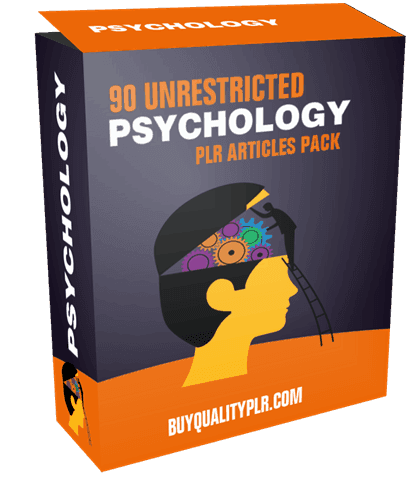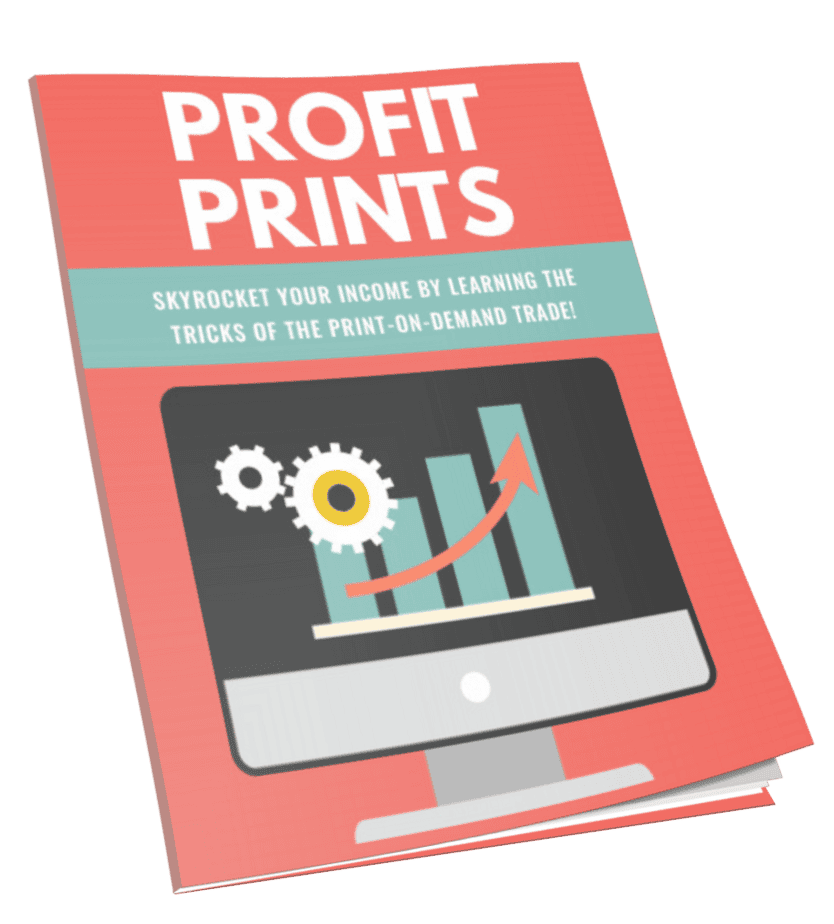
90 Unrestricted Psychology PLR Articles Pack
in Hypnotherapy PLR , PLR Article Packs , PLR Articles , Private Label Rights Products , Unrestricted PLRChoose Your Desired Option(s)
has been added to your cart!
have been added to your cart!
#Psychology #Pathology #PsychologicalTests #PersonalityDisorder #Hypnosis
90 Unrestricted Psychology PLR Articles Pack
In this PLR Content Pack You’ll get 90 Unrestricted Psychology PLR Articles Pack with Private Label Rights to help you dominate the Psychology market which is a highly profitable and in-demand niche.
has been added to your cart!
have been added to your cart!
These Psychology PLR articles are available in Text file format and can be downloaded instantly after purchase.
Introducing The…
90 Unrestricted Psychology PLR Articles Pack
Who Can Use This PLR Article Pack?
- Internet Marketers
- Coaches
- Affiliate Marketers
- Digital Product Resellers
- List Builders
- Bloggers
What Can You Do This Psychology PLR?
- Resell it as an E-course.
- Use it as blog posts.
- Create an autoresponder series.
- Create an ebook, video or report to resell or use it to build your email list.
- Create any kind of info product which you can resell with a personal use license.
- And MANY other ways!
Here are the titles of the 90 Unrestricted Psychology Articles:
1. A Brief History of Hypnosis
2. An overview of hypnosis
3. Are you afraid to die
4. Are You Under Mind Control Why Not
5. Axes of Personality Disorders
6. Can a Dream Tell us of the Future
7. Can t Quit Gambling Don’t Bet On It
8. Characteristics of Soul
9. Cluster B Personality Disorders
10. Commit To Be Happy
11. Common Features of Personality Disorders
12. Confessions of a Mind Control Victim
13. Critique and Defense of Psychoanalysis
14. Dark Hypnosis man busted & sent to jail
15. Debunking Psychics
16. Diagnosing Personality Disorders
17. Discover the Secrets of Personality Type
18. Distinguishing of Your Temperament
19. Does your shadow love you
20. Four Cognitive Skills for Successful Learning
21. Healing Psyche – False Hope Is non existent
22. Help Kids Concentrate
23. Highly Sensitive People – Traits and Characteristics
24. How cults create an artificial personality in their followers (and how you can do it too).
25. How Hypnosis Can Help You
26. How to Access States in Hypnosis Using Revivification
27. How to be an anonymous cult leader.
28. How to Experience a Lucid Dream
29. How to Make Miserable Decisions
30. How To Tell If Someone Is Lying
31. How we conceive man
32. Improving Yourself Through Self-Hypnosis
33. In Defense of Psychoanalysis
34. Intuition
35. Is It Possible To Quit Smoking with NLP
36. Is Psychology a Science
37. Is Road Rage A Psychiatric Disorder
38. Life Coach – Do you need one
39. Military Psychology The Latest Developments
40. Misdiagnosing Narcissism – Asperger’s Disorder
41. Misdiagnosing Narcissism – Generalised Anxiety Disorder GAD
42. MMPI-II Test
43. Narcissism and Personality Disorders
44. Narcissist vs. Psychopath
45. Narcissistic Personality Disorder – Clinical Features
46. Narcissistic Personality Disorder – Prevalence and Comorbidity
47. Nature VS Nurture Theories of Personality in 21st Century
48. On Empathy
49. Pathological Narcissism Psychosis and Delusions
50. Personality Test – Successful People Have Difficulty Changing
51. Personality Testing Myth and Realities
52. Persuasion Techniques
53. POWER We want it. We have it. We DON’T use it.
54. Problem Gambling – What You Should Know
55. Psychoanalysis I – Definitions and Instinct
56. Psychological Tests
57. Secret Information
58. Self Defense And Street Fight Psychology
59. Serial Killers
60. The Choice between Yes and Yes – A Psychological Revelation
61. The Construct of Normal Personality
62. The Diagnostic and Statistical Manual DSM – Pros and Cons
63. The drugs don’t work
64. The Four Elements
65. The Fundamentals of Psychological Theories
66. The Ghost Cat in the Attic
67. The Habit of Identity
68. The Heart of Grief
69. The Heart of Soul
70. The History of Personality Disorders
71. The Intermittent Explosive Narcissist
72. The Narcissist as Eternal Child
73. The Narcissist’s Confabulated Life
74. The Nature of Soul
75. The Pathology of Love
76. The Psychology Of Stacking
77. The Psychology of Torture
78. The Psychopath and Antisocial
79. The purification and advancement of the Mental Sheath
80. The relationship between the role of the Ethics Psychologist
81. The Revolution of Psychoanalysis
82. The Roots of Pedophilia
83. The Senses of Soul
84. The Shattered Identity
85. The Sound of Soul
86. The Spirit of Soul
87. The World s Greatest Lie…
88. Using Mind Control to Create an Addiction
89. What are hypnotic language patterns
90. What Causes Poly-Behavioral Addiction
91. What is Agoraphobia
92. What Is Hypno-psychotherapy
93. What is Hypnosis
94. What is Personality
95. What is the Addictions Recovery Measurement System
96. What is true listening
97. What Makes Gossip So Interesting
98. Why do people think mind control is bad
Here’s a Sample Article So That You Know What To Expect From These PLR Article Pack:
A Brief History of Hypnosis
Evidence of hypnotic-like phenomena appears in many ancient cultures. The writer of Genesis seems familiar with the anaesthetic power of hypnosis when he reports that God put Adam “into a deep sleep” to take his rib to form Eve. Other ancient records suggest hypnosis was used by the oracle at Delphi and in rites in ancient Egypt (Hughes and Rothovius, 1996). The modern history of hypnosis begins in the late 1700s, when a French physician, Anton Mesmer, revived an interest in hypnosis.
1734-1815 Franz Anton Mesmer was born in Vienna. Mesmer is considered the father of hypnosis. He is remembered for the term mesmerism which described a process of inducing trance through a series of passes he made with his hands and/or magnets over people. He worked with a person’s animal magnetism (psychic and electromagnetic energies). The medical community eventually discredited him despite his considerable success treating a variety of ailments. His successes offended the medical establishment of the time, who arranged for an official French government investigating committee. This committee included Benjamin Franklin, then the American ambassador to France, and Joseph Guillotine, a French physician who introduced a never-fail device for physically separating the mind from the rest of the body.
1795-1860 James Braid, an English physician, originally opposed to mesmerism (as it had become known) who subsequently became interested. He said that cures were not due to animal magnetism however, they were due to suggestion. He developed the eye fixation technique (also known as Braidism) of inducing relaxation and called it hypnosis (after Hypnos, the Greek god of sleep) as he thought the phenomena was a form of sleep. Later, realising his error, he tried to change the name to monoeidism (meaning influence of a single idea)however, the original name stuck. 1825-1893 Jean Marie Charcot a French neurologist,disagreed with the Nancy School of Hypnotism and contended that hypnosis was simply a manifestation of hysteria. There was bitter rivalry between Charcot and the Nancy group (Liebault and Bernheim). He revived Mesmer’s theory of Animal Magnetism and identified the three stages of trance; lethargy, catalepsy and somnambulism.
1845-1947 Pierre Janet was a French neurologist and psychologist who was initially opposed to the use of hypnosis until he discovered its relaxing effects and promotion of healing. Janet was one of the few people who continued to show an interest in hypnosis during the psychoanalytical rage.
1849-1936 Ivan Petrovich Pavlov – Russian psychologist who actually was more focused on the study of the digestive process. He is known primarily for his development of the concept of the conditioned reflex (or Stimulus Response Theory). In his classic experiment, he trained hungry dogs to salivate at the sound of a bell, which was previously associated with the sight of food. He was awarded the Nobel Prize for Physiology in 1904 for his work on digestive secretions. Though he had nothing to do with hypnosis, his Stimulus Response Theory is a cornerstone in linking and anchoring behaviours, particularly in NLP.
1857-1926 Emile Coue, a physician who formulated the Laws of Suggestion. He is also known for encouraging his patients to say to themselves 20-30 times a night before going to sleep; “Everyday in every way, I am getting better and better.” He also discovered that delivering positive suggestions when prescribing medication proved to be a more effective cure than prescribing medications alone. He eventually abandoned the concept of hypnosis in favour of just using suggestion, feeling hypnosis and the hypnotic state impaired the efficiency of the suggestion.
Coue’s Laws of Suggestion
The Law of Concentrated Attention
” Whenever attention is concentrated on an idea over and over again, it spontaneously tends to realise itself”
The Law of Reverse Action
“The harder one tries to do something, the less chance one has of success”
The Law of Dominant Effect
“A stronger emotion tends to replace a weaker one”
1856-1939 Sigmund Freud travelled to Nancy and studied with Liebault and Bernheim, and then did additional study with Charcot. Freud did not incorporate hypnosis in his therapeutic work however because he felt he could not hypnotise patients to a sufficient depth, felt that the cures were temporary, and that hynosis stripped patients of their defences. Freud was considered a poor hypnotist given his paternal manner. However, his clients often went into trance and he often, unknowingly, performed non-verbal inductions when he would place his hand on his patient’s head to signify the Doctor dominant, patient submissive roles. Because of his early dismissal of hypnosis in favour of psychoanalysis, hypnosis was almost totally ignored.
1875-1961 Carl Jung, a student and colleague of Freud’s, rejected Freud’s psychoanalytical approach and developed his own interests. He developed the concept of the collective unconscious and archetypes. Though he did not actively use hypnosis, he encouraged his patients to use active imagination to change old memories. He often used the concept of the inner guide, in the healing work. He believed that the inner mind could be accessed through tools like the I Ching and astrology. He was rejected by the conservative medical community as a mystic. However, many of his ideas and theories are actively embraced by healers to this day.
Please Note: The above content is only a sample preview of one of the articles in this PLR Article Pack so that you can see the quality of the content.
How to Purchase This Psychology PLR Pack?
Simply add it to cart, and checkout using with our secure 2Checkout Payment Gateway which supports PayPal and all major Credit Cards.
We will only be selling 50 copies on this Psychology PLR content pack, so don’t waste any time and grab your PLR license while it’s still available for sale.
has been added to your cart!
have been added to your cart!
Package Details:
Download File Size – 430 KB
License Details:
[YES] You get all the articles with private label rights
[YES] You can brand the articles with your name
[YES] You can edit the articles
[YES] You can use the articles to create an autoresponder email series
[YES] You can use articles as web content
[YES] You can use articles as content for your ebooks
[YES] You can use articles as content for your reports
[YES] You can use articles as content for your off-line publications
[YES] You can use translate all articles to any language you want
[YES] You can sell the articles
[YES] You can sell them with resale rights
[YES] You can sell them with master resale rights
[YES] You can sell them with private label rights
[YES] You can add them to your membership sites
[YES] You can sell them in auction sites
[YES] You can use them to build your list
[YES] You can give them as a bonus
[YES] You can package them and sell the packages in any way you want
[YES] You can start a membership site and deliver articles to your members
[NO] You cannot give them away for free under any circumstances
Share Now!












